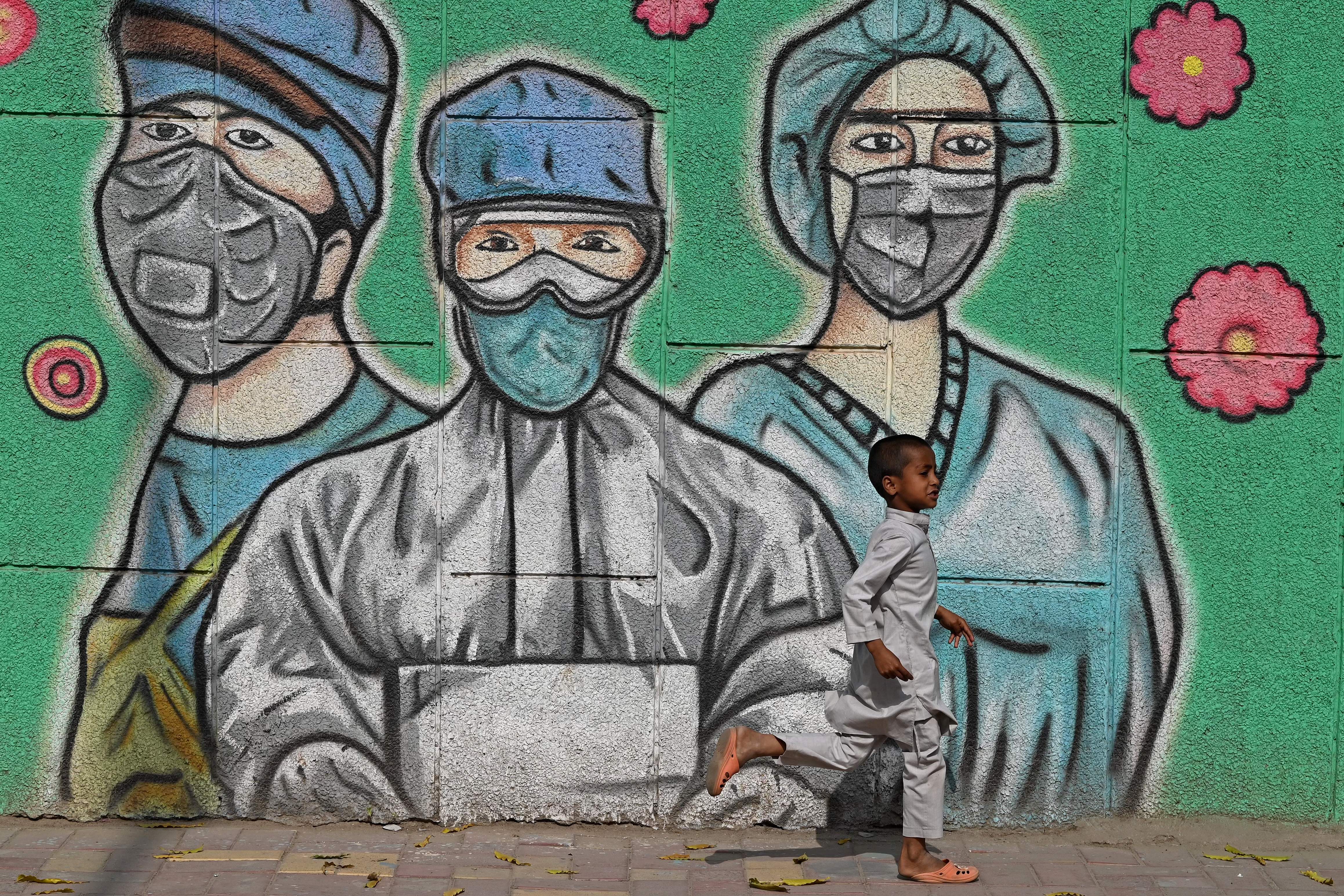India coronavirus cases up 47,000 in one day as country faces prospect of second wave
Coronavirus infections are rising faster than recoveries in India

Your support helps us to tell the story
From reproductive rights to climate change to Big Tech, The Independent is on the ground when the story is developing. Whether it's investigating the financials of Elon Musk's pro-Trump PAC or producing our latest documentary, 'The A Word', which shines a light on the American women fighting for reproductive rights, we know how important it is to parse out the facts from the messaging.
At such a critical moment in US history, we need reporters on the ground. Your donation allows us to keep sending journalists to speak to both sides of the story.
The Independent is trusted by Americans across the entire political spectrum. And unlike many other quality news outlets, we choose not to lock Americans out of our reporting and analysis with paywalls. We believe quality journalism should be available to everyone, paid for by those who can afford it.
Your support makes all the difference.India saw a spike of almost 47,000 cases of coronavirus on Monday, recording its highest single-day surge in infections for months as the country tries to stave off a major second wave.
With the Hindu festival of Holi on the horizon, experts say that complacency over Covid protocols like social distancing and mask-wearing is driving a surge of new cases, which were down around 9,000 per day in February.
The country has now confirmed more than 260,000 fresh cases in the past week, taking it above 11 million in total and to a death toll of more than 160,000 since the start of the pandemic.
Recent weeks have seen an uptick in infections in almost all states, though the outbreak is not evenly distributed. Six densely populated states – Maharashtra, Punjab, Kerala, Karnataka, Gujarat and Madhya Pradesh – account for almost 85 per cent of the active cases in the country.
Monday also marked one year since India’s prime minister Narendra Modi called for a one-day janta (public) curfew, described at the time as a dry run for what a national lockdown would look like. A day later, the national lockdown became a reality, with 1.3 billion people made to follow strict rules that lasted for weeks.
Read more:
At the peak of its epidemic in September, India was seeing single-day surges of almost 100,000 cases, but those numbers were brought largely under control, and life has mostly returned to normal for many Indians since.
Maharashtra state, home to Mumbai, the country’s financial hub, remains the worst-hit area since the beginning of the pandemic. The state alone accounted for 30,535 of the new coronavirus cases in the last 24 hours.
Leading epidemiologist Jayaprakash Muliyil told The Independent that the rise had been expected because people became overconfident as graphs showed cases and deaths coming down.
“There are many reasons to be blamed for the rise. But if we see it scientifically, India saw a certain amount of protection in the country to the virus in the sero-survey. We need about 60 per cent sero-positivity in urban areas and 40 per cent in rural. When the epidemic began receding it was quite pleasing that numbers were going down despite not reaching that level of immunity,” Dr Muliyil said.
India was far from alone in becoming complacent, he said, adding: “Every country followed the double peak and it was expected.”
The death toll has also increased sharply in the country with 212 Covid-related fatalities in the last 24 hours, the highest number in the past 72 days.
With fears that mutations in the virus could also be pushing India towards a second peak, Mr Modi has called on state governments to take fresh steps to quash any second wave immediately.
Lockdowns and night curfews have been announced in several Indian states, including Gujarat, Rajasthan, Maharashtra and Chhattisgarh.
The rise in Covid cases also comes as India continues its vaccination drive, which after a slow start has now seen 4 per cent of the country's population receiving one dose of the vaccine. That puts it back on track towards its ambitious target of inoculating 20 per cent of the population by August.
Dr Randeep Guleria, director of the All India Institute Of Medical Sciences (AIIMS) in Delhi, told NDTV that both mutant variants and large gatherings could be the reasons behind the rise in numbers.
“There is a loss of Covid-appropriate behaviour. Now people feel that the pandemic is over because vaccines are here. So they fail to wear masks. We see large crowds gathering - again without masks. Many of these crowded events have become super-spreading events,” Dr Guleria said.
The country is now less than a week away from Holi, when families and friends traditionally come together to throw colourful powder and stage large feasts. Some state governments are said to be mulling restrictions on the holiday, fearing it could become a nationwide super-spreader event.
Join our commenting forum
Join thought-provoking conversations, follow other Independent readers and see their replies
Comments